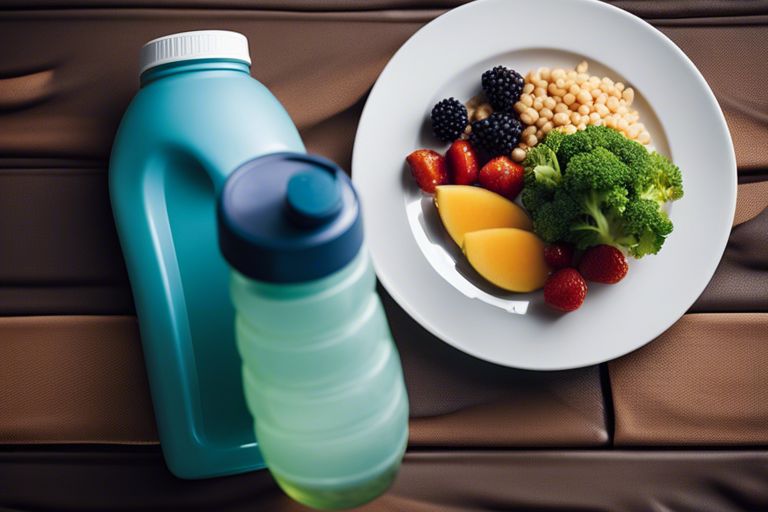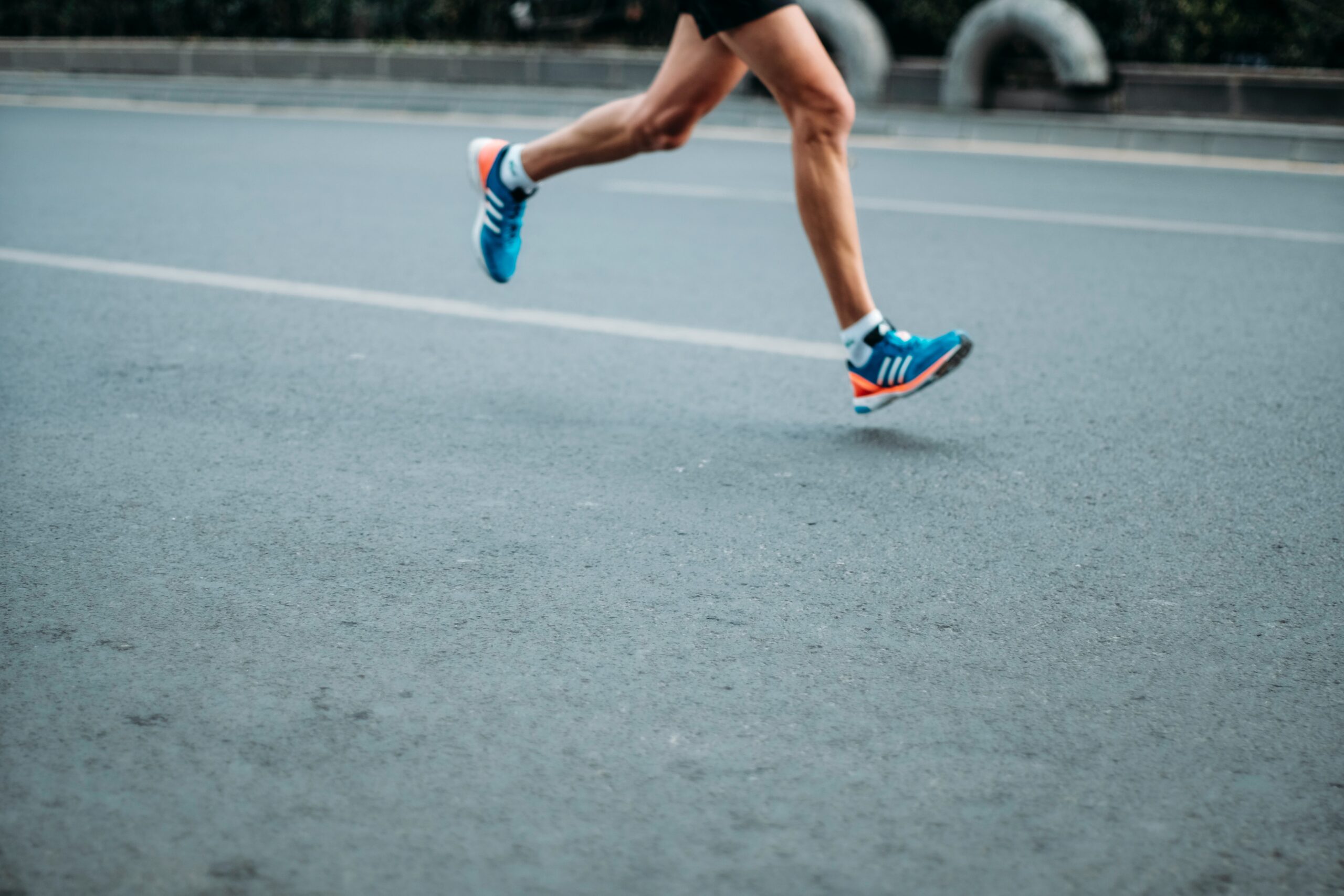Understanding the importance of nutrition in your post-jogging recovery is important to maximising the benefits of your workout. Fueling your body with the right nutrients after a run can help speed up muscle repair, replenish glycogen stores, and reduce the risk of injury. In this blog post, we will explore the best foods to eat post-jogging to aid in your recovery and ensure you get the most out of your exercise routine. Whether you’re a seasoned runner or just starting out, knowing what to eat can make a significant difference in how you feel and perform.
Key Takeaways:
- Complex carbohydrates such as whole grains, sweet potatoes, and brown rice are important for replenishing glycogen levels after a jogging session.
- Protein is crucial for muscle repair and growth, making sources like lean meats, tofu, and lentils perfect for post-run recovery.
- Healthy fats found in avocados, nuts, and seeds can help reduce inflammation and support overall recovery in the body.
- Hydration is key in aiding muscle recovery, so make sure to drink plenty of water and consider a sports drink with electrolytes after a long run.
- Avoid processed foods high in sugar and unhealthy fats as they can hinder the body’s recovery process and leave you feeling sluggish.
The Fundamentals of Jogging Recovery
The Role of Nutrition in Muscle Repair
Proper nutrition plays a crucial role in muscle repair after a jogging session. Consuming a combination of protein and carbohydrates within 30 minutes post-exercise can help kick start the recovery process. Protein aids in repairing and building muscle tissues, while carbohydrates replenish energy stores that were expended during the run. Including foods like lean meats, nuts, fruits, and whole grains in your post-run meal can enhance recovery and reduce muscle soreness.
Hydration and Its Impact on Recovery
Hydration is necessary for optimal recovery post-jogging. Water is crucial for regulating body temperature, transporting nutrients to cells, and aiding in joint lubrication. Dehydration can impede the recovery process and lead to decreased performance in subsequent runs. It’s important to hydrate before, during, and after a run to replace fluids lost through sweat and maintain proper bodily functions.
Macronutrients for Recovery
Carbohydrates: Refueling Energy Stores
Carbohydrates are vital for replenishing the energy stores depleted during a strenuous workout. Opt for easily digestible carbohydrates like fruits, vegetables, and whole grains to kickstart the recovery process and restore glycogen levels in the muscles.
Proteins: Building and Repairing Muscles
Proteins play a vital role in building and repairing muscles post-exercise. Include sources of lean protein such as chicken, fish, eggs, or plant-based options like tofu and legumes in your post-workout meal to aid in muscle recovery and growth.
Proteins consist of amino acids, the building blocks of muscle tissue. Consuming an adequate amount of protein after a workout is crucial for repairing and rebuilding muscle fibres that may have been damaged during exercise.
Fats: The Overlooked Contributor to Recovery
Fats often get overlooked in post-workout nutrition, but they are important for supporting overall recovery. Healthy fats from sources like avocados, nuts, seeds, and oily fish can help reduce inflammation and provide a sustained source of energy during the recovery phase.
In addition to their role in energy provision, fats also aid in the absorption of fat-soluble vitamins such as Vitamin D, which is important for maintaining bone health and overall recovery after intense physical activity.
Micronutrients and Supplements
Vitamins and Minerals Essential for Recovery
Concerning jogging recovery, certain vitamins and minerals play a crucial role in supporting the body’s healing process. Vitamin C, for example, is known for its antioxidant properties, which can help reduce inflammation and promote tissue repair. Minerals like magnesium and potassium are crucial for muscle function and hydration, aiding in quicker recovery after a long run. Including a variety of fruits, vegetables, nuts, and seeds in your post-run meals can help ensure you are getting an adequate supply of these vital micronutrients.
The Use of Supplements in Jogging Recovery
While a well-balanced diet should be the priority for meeting your nutritional needs, there are situations where supplements can be beneficial for jogging recovery. Athletes who struggle to meet their daily requirements for certain vitamins and minerals may benefit from taking supplements under the guidance of a healthcare professional. Additionally, certain supplements like omega-3 fatty acids or protein powders can be convenient options to support muscle repair and reduce inflammation post-exercise. Always consult with a healthcare provider before incorporating supplements into your recovery routine to ensure they are safe and effective for your individual needs.
Timing Your Recovery Meals
The Anabolic Window: Fact or Fiction?
There has been much debate surrounding the concept of the ‘anabolic window’, which suggests that there is a limited time post-exercise where nutrient consumption is crucial for muscle recovery and growth. Some studies support this theory, indicating that consuming protein and carbohydrates within 30-60 minutes post-exercise can enhance muscle protein synthesis. However, other research suggests that the body may be more resilient than previously thought, and nutrient timing may not be as critical as once believed. Ultimately, the most important factor is ensuring an overall balanced diet that meets your nutritional needs.
Practical Scheduling for Recovery Eating
In the context of practical scheduling for recovery eating, it’s imperative to focus on consistency and personal preference. If you have a hectic schedule that doesn’t allow for immediate post-exercise meals, don’t stress. As long as you consume a well-rounded meal containing protein, carbohydrates, and fats within a few hours of your workout, you should still reap the benefits of enhanced recovery. Experiment with different timing strategies to find what works best for your body and lifestyle.
Keep in mind, the key to optimising recovery is not just about the timing of your meals but also the quality and quantity of nutrients you consume. Listen to your body, fuel it with the right foods, and stay consistent with your post-exercise eating habits to support your fitness goals.
Recovery Meal Planning
Quick and Easy Post-Jogging Snacks
After a strenuous jogging session, it’s crucial to refuel your body with nutrient-dense snacks that aid in muscle recovery and replenish energy levels. Opt for quick options such as a banana with a spoonful of almond butter, a Greek yoghurt with mixed berries, or a handful of mixed nuts and dried fruits. These snacks provide a good balance of carbohydrates, protein, and healthy fats to support your body’s recovery process.
Recipes for Optimal Recovery
For optimal recovery after a jog, consider preparing a nutrient-packed meal such as a quinoa salad with grilled chicken and a variety of colourful vegetables, a smoothie bowl with spinach, banana, protein powder, and almond milk, or a salmon and sweet potato wrap with avocado. These recipes are rich in imperative nutrients like protein, vitamins, minerals, and antioxidants, which are imperative for muscle repair and overall recovery.
Ensuring you consume the right balance of macronutrients and micronutrients post-jogging is key to enhancing your recovery and performance. Experiment with different snack options and recipes to find what works best for your body and aids in your fitness goals.
Jogging and Nutrition – What to Eat for Recovery
Choosing the right foods after a jogging session is crucial for optimal recovery and performance. Including a combination of carbohydrates and protein in your post-run meal can help replenish glycogen stores and repair muscle damage efficiently. Foods like bananas, sweet potatoes, lean protein sources, and whole grains are ideal choices to aid in recovery. Additionally, staying hydrated and consuming anti-inflammatory foods such as berries and leafy greens can further enhance the recovery process. Prioritising nutrition alongside your jogging routine can lead to improved muscle recovery, reduced risk of injuries, and overall better performance. Recall, fuelling your body with the right nutrients is key to reaping the full benefits of your jogging efforts.
FAQ
Q: What should I eat after a jogging session for optimal recovery?
A: After a jogging session, it is important to consume a balanced meal or snack that includes a combination of carbohydrates and proteins. Carbohydrates replenish glycogen stores, while proteins help repair and build muscle tissues.
Q: How soon after jogging should I eat for recovery?
A: Ideally, you should consume a recovery meal or snack within 30 minutes to an hour after finishing your jogging session. This is when your body is most receptive to replenishing energy stores and repairing muscles.
Q: Are there specific foods that are recommended for post-jogging recovery?
A: Yes, foods that are rich in carbohydrates like whole grains, fruits, and vegetables, as well as lean proteins like chicken, fish, or tofu, are recommended for post-jogging recovery. Additionally, foods high in antioxidants like berries can help reduce inflammation.
Q: Is hydration important for recovery after jogging?
A: Yes, staying hydrated is crucial for recovery after jogging. Make sure to drink plenty of water before and after your run to replace fluids lost through sweating. Electrolyte-rich drinks can also help replenish lost minerals.
Q: Can I include fats in my post-jogging recovery meal?
A: While carbohydrates and proteins are the main focus for post-jogging recovery, it is still important to include healthy fats in moderation. Foods like nuts, seeds, and avocado can provide imperative fatty acids that support overall health and recovery.






